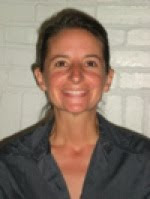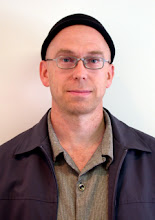
Today
is Parinirvana Day, the 15th of February, a day on which millions of
people around the world observe the anniversary of the death of the
historical Buddha, Shakyamuni. Here at City Center we had a beautiful
ceremony, which we do at this time every year, in which we darken the
zendo, and light a candle at each person's place, and read the sutra
that recounts the Buddha's last days.
The Buddha was a
person who had had the most profound of spiritual awakenings. And yet,
he was simply a human being, subject to the fundamental condition of
impermanence. Like all of us, the Buddha was subject to old age,
sickness and death. Yet, this is a day of celebration because the Buddha
clearly demonstrated his teaching in his own death. His last words were
an encouragement to his students. He said, "All conditioned things are
subject to decay. Practice earnestly to awaken." It's such an
inspiration to me, because I see the Buddha not as a deity or a
superhuman being, but as a person who showed us a path to freedom that
we can all walk.
In the sutra that describes the Buddha's last
moments it's said that some of his disciples tore at their hair, fell on
the ground, and exhibited other extreme states of sorrow at their
teacher's death. This is completely understandable. They had given their
lives to follow this incredible teacher, and then he was gone. However,
it also mentions that "those disciples who had let go of attachments
reflected on the impermanence of all things, and wept softly." This is a
great lesson, especially for practitioners of Zen. It is a teaching
which clearly demonstrates that, even for the most admired
practitioners, letting go does not mean not having feelings or not
showing our feelings. Rather, the most advanced practitioners of the
Buddha's day were those who could gently hold and express their
emotions, while acknowledging the inevitability of change.
I'm
struck by this because I think that it's easy to make the mistake of
hoping that through practice we can become bullet proof. You might
think that if you sit zazen long enough or hard enough that you will
have more control over your mind, so you won't have to deal with strong
feelings anymore. Or you might think that achieving equanimity means
that strong feelings will just stop coming up because your mind will
become completely quiet. A few years ago, when I went through the very
painful breakup of a relationship, I found that I too had fallen into
this trap. I was surprised that it hurt so much and that I found myself
crying a lot. Studying that a bit further, I realized that I held a
subtle belief that because I had been practicing for a long time, I
shouldn't feel so much pain. But that is not what the Buddha taught. The
Buddha taught that you can feel the pain but still become completely
free of it, free
in the midst it, free by being at one with it.
I'm
reminded of a time many years ago when my Master, Sekkei Harada Roshi,
cried after the death of his dog. Even students who had been studying
with him for decades were surprised, and wondered what that was all
about. Roshi cried because of the loss of this being who had a companion
to him, and he did so quietly and without wishing it to be different.
So
let's not fall into the trap of bullet proof Zen, not fall into the
trap of believing that zazen or anything else for that matter, will
eliminate strong emotion from our lives. Instead, realize that strong
feelings can and do happen, and when they do, we can gently accept them
and express them and be free of them.























